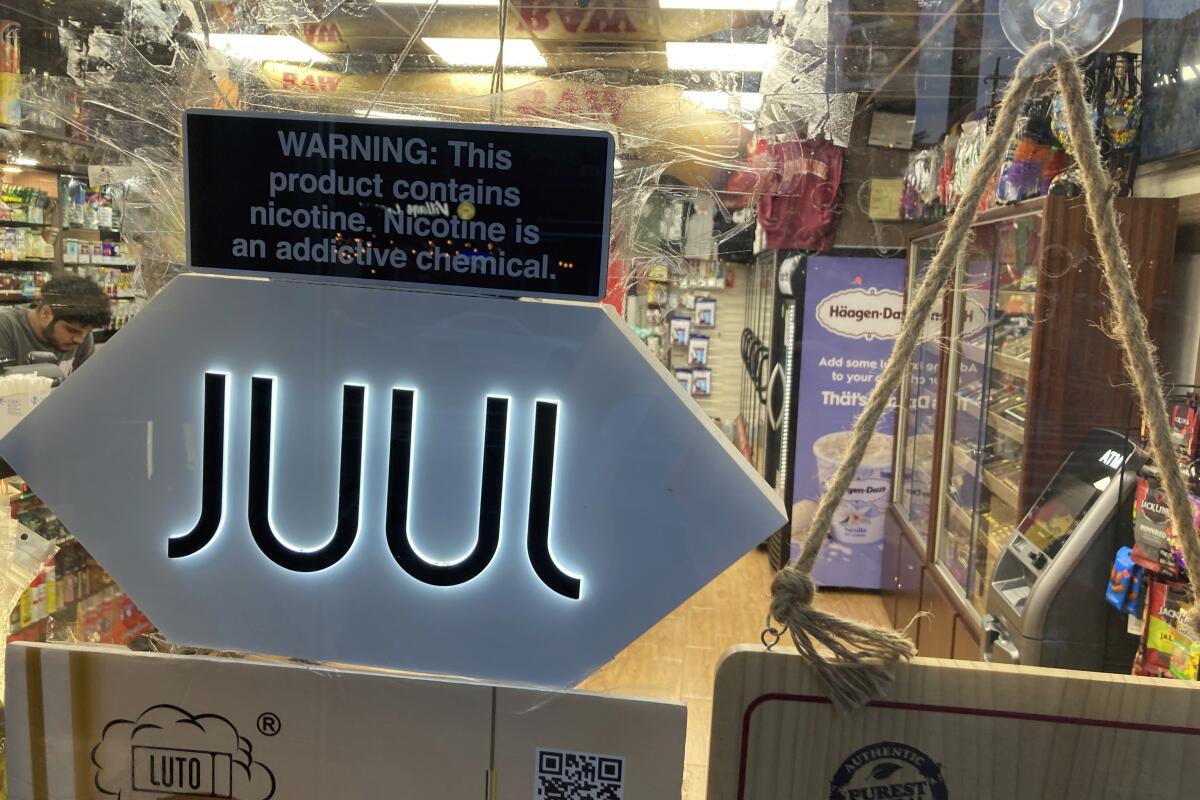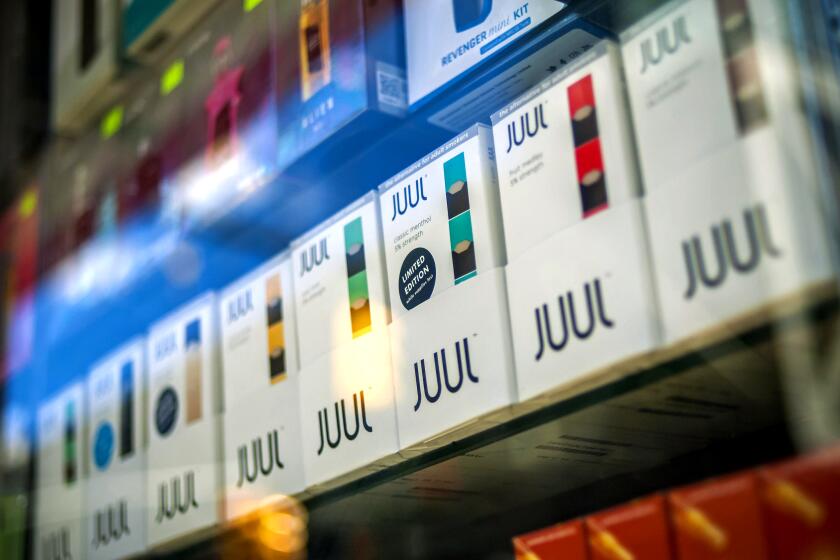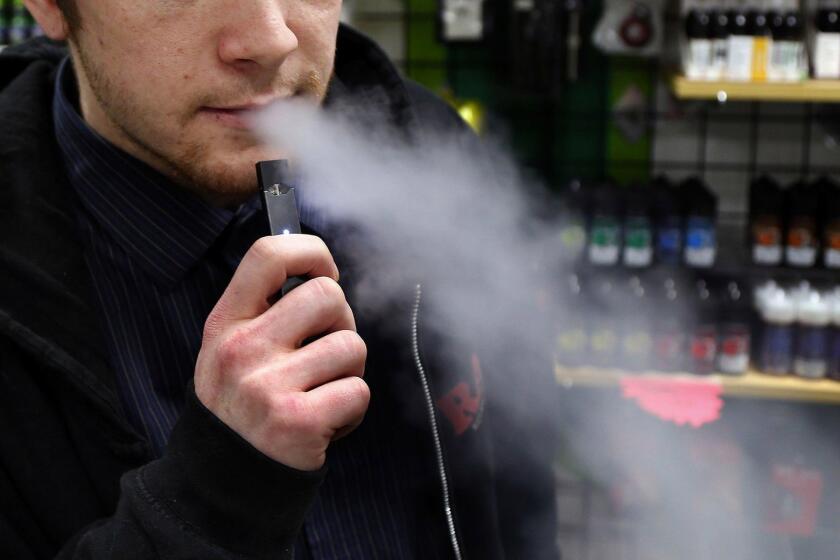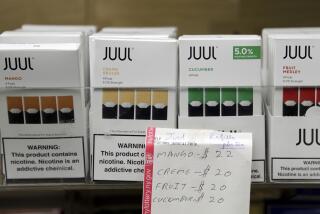Juul reaches settlements covering more than 5,000 cases

- Share via
Juul Labs has reached settlements covering more than 5,000 cases brought by about 10,000 plaintiffs related to its vaping products.
Financial terms of the settlement were not disclosed, but Juul said that it has secured an equity investment to fund it.
Juul rocketed to the top of the U.S. vaping market five years ago on the popularity of flavors like mango, mint and creme brulee. But the San Francisco company’s rise was fueled by use among teenagers, some of whom became hooked on Juul’s high-nicotine pods.
The backlash against teen vaping triggered a series of government actions that have forced the company into retreat. Since 2019, Juul has dropped all U.S. advertising and discontinued most of its flavors.
Buffeted by lawsuits, Juul announced hundreds of layoffs last month and bankruptcy appeared increasingly likely as it secured financing to continue operations.
Stanford studies suggest that Juul blanketed social media with promotions to entice youngsters into vaping.
In June the Food and Drug Administration rejected Juul’s application to keep its product on the market as a smoking alternative for adults, throwing its future into uncertainty. The FDA said Juul did not adequately address key questions about the potential for chemicals to leech from its device. The FDA has placed a temporary hold on its initial decision while Juul files an appeal.
Then, in September, the San Francisco company agreed to pay nearly $440 million to settle a two-year investigation by 33 states into the marketing of its high-nicotine vaping products.
That same month the company’s largest investor, tobacco giant Altria, announced plans to resume competing on its own in the e-cigarette space.
Altria pulled its own e-cigarettes off the market in 2018 after taking a nearly $13-billion stake in Juul. But that investment has lost more than 95% of its value as Juul’s prospects have dimmed, giving Altria the option to exit its non-compete agreement.
That means Juul could soon be forced to battle for space on retail shelves with Marlboro-maker Altria, along with longstanding competitors like Reynolds American’s Vuse, which recently edged past Juul to become the leading U.S. vaping brand.
Documents reviewed by The Times reveal that the chemical formula that makes Juul so palatable and addictive dates back more than four decades — to Reynolds’ tobacco laboratories.
Juul has also settled with 37 states and territories over the last year and said it’s in ongoing talks with other key stakeholders to resolve remaining litigation.
More to Read
Inside the business of entertainment
The Wide Shot brings you news, analysis and insights on everything from streaming wars to production — and what it all means for the future.
You may occasionally receive promotional content from the Los Angeles Times.












